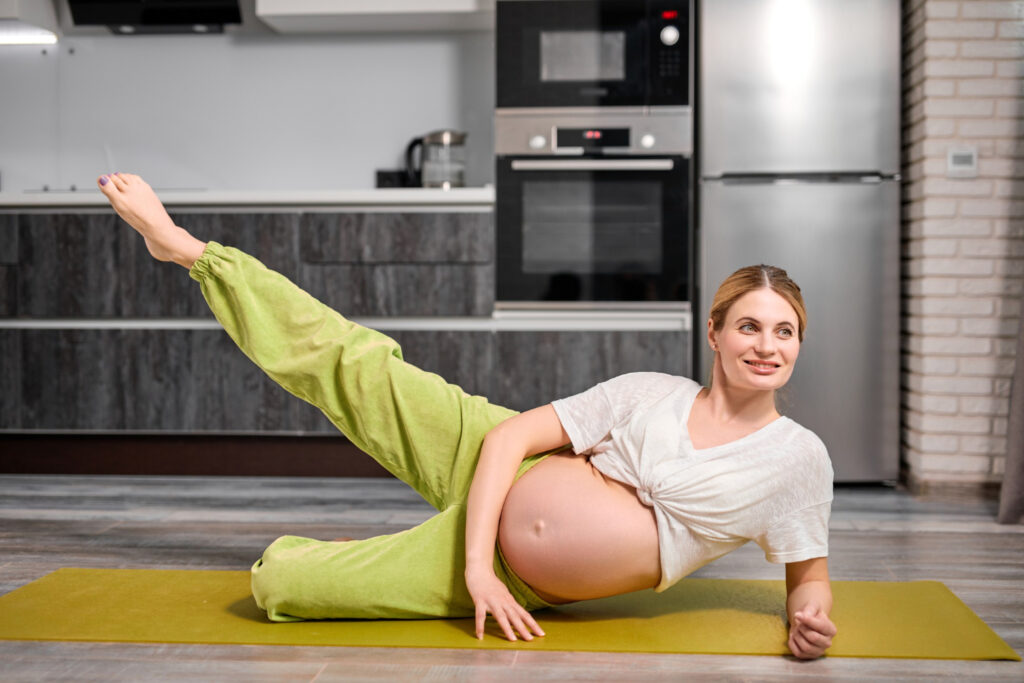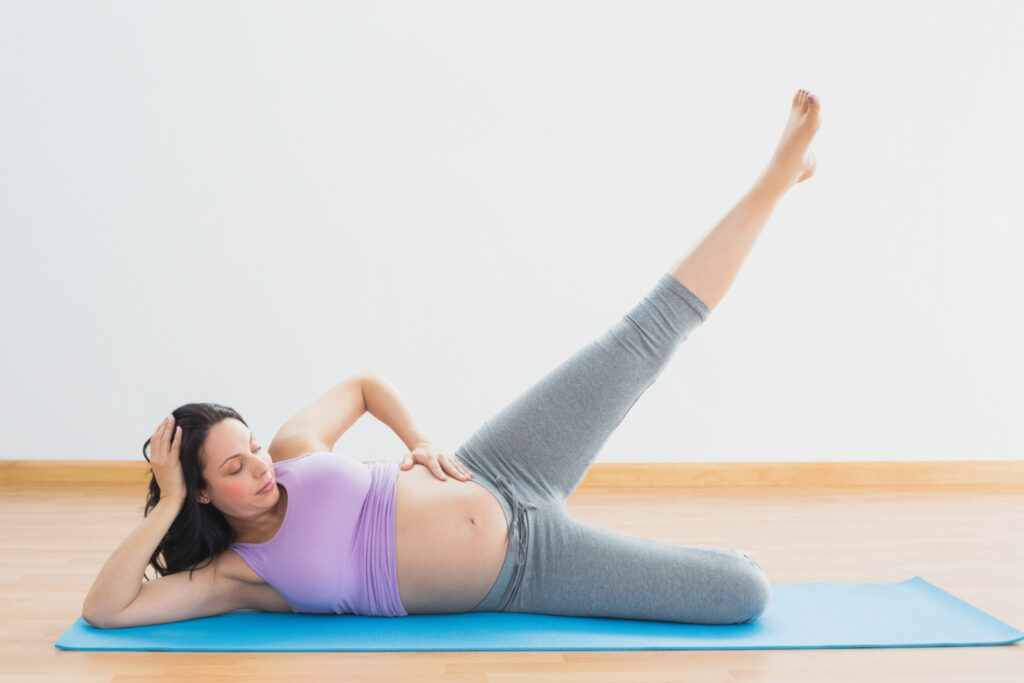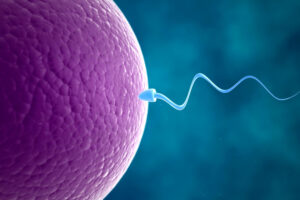When you’re planning to start a family, you’ll likely focus on medical checkups, nutrition, and timing ovulation — but one often-overlooked factor is physical activity. Exercise isn’t just for weight loss or fitness goals; it plays a decisive role in preparing your body for conception.
The right fertility-boosting exercises can:
- Regulate your hormones
- Improve egg and sperm quality
- Enhance blood circulation to the reproductive organs
- Reduce stress levels
- Support a healthy weight
In this comprehensive guide, we’ll explore the best exercises to improve fertility for both men and women, explain why they work and share practical tips on incorporating them into your daily life. Whether you’re just starting your fitness journey or are already active, you’ll find tailored advice to boost reproductive health naturally.
How Exercise Impacts Fertility
Before exploring the specific fertility exercises for men and women, it’s essential to understand the underlying science behind their benefits.
1. Hormonal Balance
Hormones such as estrogen, progesterone, and testosterone have a direct influence on fertility. Regular exercise helps regulate these hormones, ensuring healthy ovulation in women and strong sperm production in men.
2. Healthy Blood Circulation
Improved blood flow delivers more oxygen and nutrients to reproductive organs, which supports egg maturation and sperm motility.
3. Stress Reduction
High stress levels can disrupt ovulation and lower sperm count. Exercise boosts endorphin levels, which can reduce anxiety and create a more favourable environment for conception.
4. Weight Management
Being significantly underweight or overweight can negatively affect fertility by disrupting hormonal function. Workouts for fertility health help maintain a healthy BMI, which is strongly linked to improved reproductive outcomes.
Best Fertility-Boosting Exercises for Women
1. Walking and Light Jogging
- Why it works: Low-impact cardio improves circulation and helps maintain a healthy weight without putting excess stress on the body.
- How to do it: Aim for 30–45 minutes, 5 days a week. Brisk walking is ideal for beginners, while light jogging works for those already accustomed to regular exercise.
- Extra tip: Walking outdoors can also boost vitamin D levels from sunlight, which supports reproductive health.
2. Yoga for Fertility
Yoga combines movement, stretching, and breathing to support both the body and mind. Certain poses are particularly beneficial for women as fertility exercises.
- Top poses for fertility:
- Cobbler’s Pose (Baddha Konasana) – Improves pelvic blood flow.
- Legs Up the Wall (Viparita Karani) – Relieves stress and promotes relaxation.
- Bridge Pose (Setu Bandhasana) – Strengthens pelvic floor muscles.
- Recommended practice: 20–30 minutes daily.
- Bonus benefit: Reduces cortisol (stress hormone) levels, which can interfere with fertility.

3. Pilates
- Why it’s effective: Builds core strength, improves posture, and supports pelvic health — important for reproductive organ positioning.
- Best moves: Pelvic tilts, gentle leg lifts, and controlled breathing exercises.
- Frequency: 2–3 sessions per week.
4. Swimming
- Benefits: Full-body workout that improves cardiovascular health and flexibility without stressing the joints.
- Ideal routine: 30-minute sessions, 3 times a week.
- Why it’s good for fertility: Supports circulation while keeping body temperature stable — overheating can sometimes affect fertility hormones.
5. Strength Training
- How it helps: Increases muscle mass, boosts metabolism, and improves insulin sensitivity, which is particularly beneficial for women with PCOS (a common cause of infertility).
- Suggested approach: Use light to moderate weights or resistance bands for 8–12 reps of exercises like squats, lunges, and chest presses.
- Frequency: 2–3 non-consecutive days per week.
Best Fertility-Boosting Exercises for Men
1. Moderate Cardio
- Examples: Swimming, brisk walking, light jogging or rowing.
- Why it helps: Improves heart health and boosts circulation to the reproductive organs.
- Caution: Limit prolonged cycling to avoid overheating and pressure on the groin, which can affect sperm quality.
2. Strength Training
- Why it’s vital: Builds muscle, supports testosterone production and helps maintain a healthy weight.
- Key exercises: Push-ups, pull-ups, squats, deadlifts and bench presses.
- Routine: 3–4 times a week, focusing on all major muscle groups.
3. Yoga for Men
Men benefit from yoga’s stress-reducing effects and increased flexibility.
- Best poses:
- Bow Pose (Dhanurasana) – Improves pelvic blood flow.
- Seated Forward Bend (Paschimottanasana) – Calms the mind and stretches the hamstrings.
- Cobra Pose (Bhujangasana) – Strengthens the back and improves spinal flexibility.
4. High-Intensity Interval Training (HIIT) – in moderation
- Why it’s effective: Boosts cardiovascular fitness, testosterone levels, and metabolism.
- Important note: Overtraining can harm sperm quality — limit HIIT to 2 sessions per week.
Couples’ Workouts for Fertility Health
Working out together can strengthen your relationship and make fitness more enjoyable.
1. Partner Yoga
- Encourages teamwork, communication, and relaxation.
- Reduces stress and increases intimacy.
2. Hiking
- Combines cardio with exposure to nature and sunlight (a source of fertility-friendly vitamin D).
- Great weekend activity for quality time.
3. Dancing
- Fun and effective cardio workout.
- Improves coordination, boosts mood and keeps both partners active.

Ideal Exercise Duration for Fertility
Research suggests:
- For women: 150 minutes of moderate-intensity activity per week, plus light strength training.
- For men: 150–300 minutes of moderate cardio and 2–3 strength sessions per week.
- Caution: Excessive, high-intensity workouts — especially endurance sports — can disrupt ovulation in women and lower sperm count in men.
Safety Tips for Starting Fertility-Boosting Exercises
- Warm up for 5–10 minutes to prepare your muscles and joints.
- Stay hydrated before, during, and after workouts.
- Avoid extreme heat, such as saunas or hot yoga, if you are actively trying to conceive.
- Listen to your body — rest if you feel pain or extreme fatigue.
- Consult your doctor before starting a new routine, especially if you have existing health concerns.
Sample Weekly Fertility-Boosting Workout Plan
| Day | Activity | Duration |
| Monday | Brisk walk + light strength training | 45 mins |
| Tuesday | Yoga for fertility | 30 mins |
| Wednesday | Pilates + core strengthening | 30 mins |
| Thursday | Strength training (full body | 40 mins |
| Friday | Swimming or light jogging | 30 mins |
| Saturday | Partner hike or dance session | 60 mins |
| Sunday | Gentle yoga or complete rest | — |
Lifestyle Tips to Support Exercise and Fertility
- Eat fertility-friendly foods: Leafy greens, whole grains, lean proteins, nuts, seeds, and antioxidant-rich fruits.
- Get enough sleep: Aim for 7–8 hours of quality rest.
- Manage stress: Try meditation, journaling, or relaxing hobbies.
- Limit toxins: Avoid smoking, excess alcohol and highly processed foods.
Conclusion
Regular fertility-boosting exercises are a natural, effective way to prepare your body for conception. Whether you’re doing yoga, strength training, swimming or simply taking daily walks, the key is consistency and moderation. Pairing these workouts with a healthy diet and lifestyle can significantly improve your chances of starting or expanding your family.
By incorporating these exercises into their routine, both men and women can improve fertility, balance hormones, and experience better overall wellness — making the fertility journey a more positive experience.
About The Boon IVF
At The Boon IVF in Hyderabad, we believe in a holistic approach to fertility care. Our specialists not only provide advanced medical treatments but also guide couples on lifestyle changes — including fertility exercises for men and women, nutrition, and stress management — to enhance success rates. We’re here to support you every step of the way on your path to parenthood.


